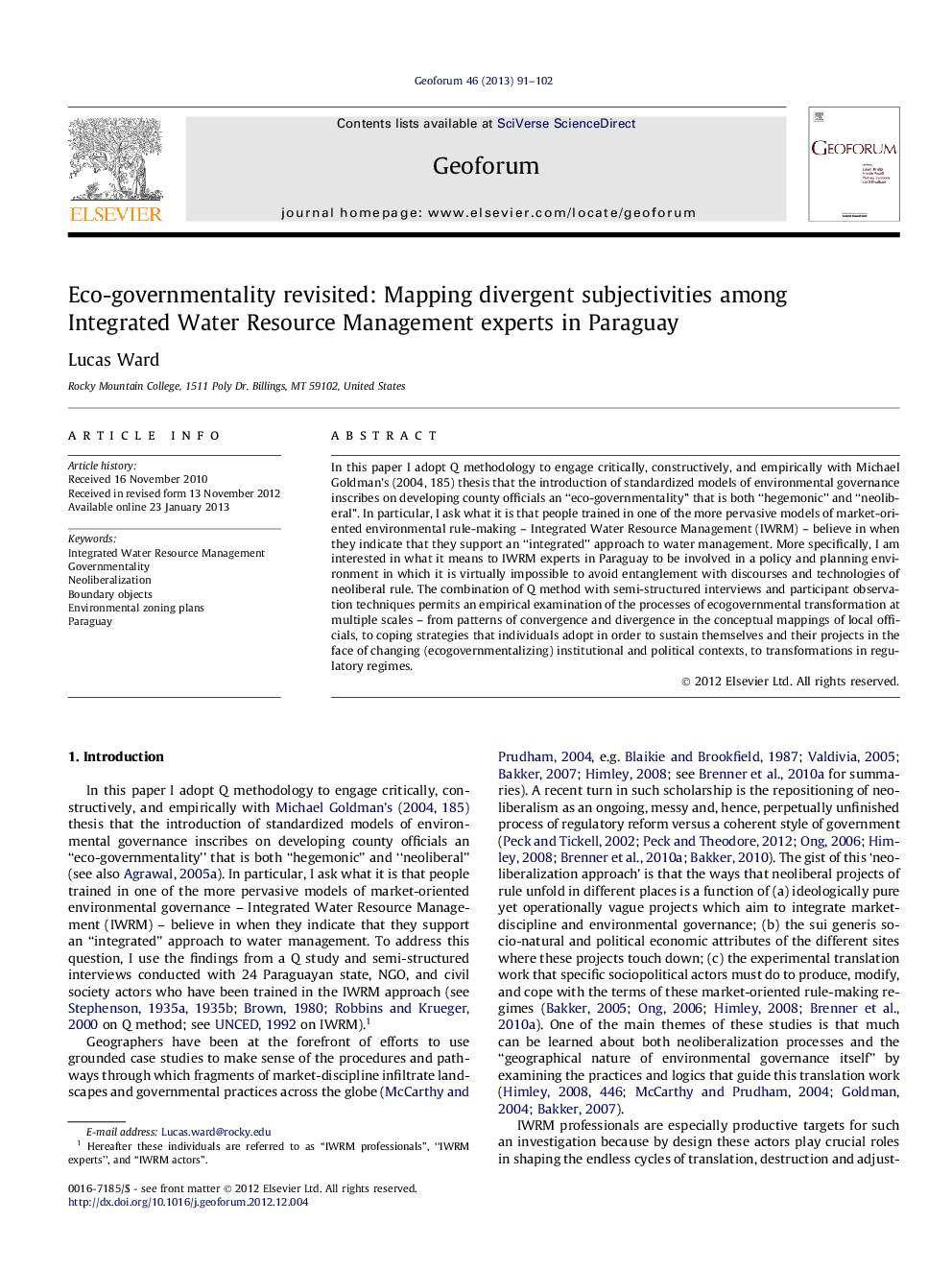| Article ID | Journal | Published Year | Pages | File Type |
|---|---|---|---|---|
| 5074368 | Geoforum | 2013 | 12 Pages |
In this paper I adopt Q methodology to engage critically, constructively, and empirically with Michael Goldman's (2004, 185) thesis that the introduction of standardized models of environmental governance inscribes on developing county officials an “eco-governmentality” that is both “hegemonic” and “neoliberal”. In particular, I ask what it is that people trained in one of the more pervasive models of market-oriented environmental rule-making - Integrated Water Resource Management (IWRM) - believe in when they indicate that they support an “integrated” approach to water management. More specifically, I am interested in what it means to IWRM experts in Paraguay to be involved in a policy and planning environment in which it is virtually impossible to avoid entanglement with discourses and technologies of neoliberal rule. The combination of Q method with semi-structured interviews and participant observation techniques permits an empirical examination of the processes of ecogovernmental transformation at multiple scales - from patterns of convergence and divergence in the conceptual mappings of local officials, to coping strategies that individuals adopt in order to sustain themselves and their projects in the face of changing (ecogovernmentalizing) institutional and political contexts, to transformations in regulatory regimes.
⺠Q method reveals structure of Paraguayan officials' views on watershed management. ⺠Three distinct viewpoints emerge. ⺠Viewpoints are distinguished by perspectives on state, market, participation. ⺠Views converge on importance of environmental zoning plans, not neoliberal ideology. ⺠Environmental zoning plans allow heterogeneity and cooperation to coexist.
